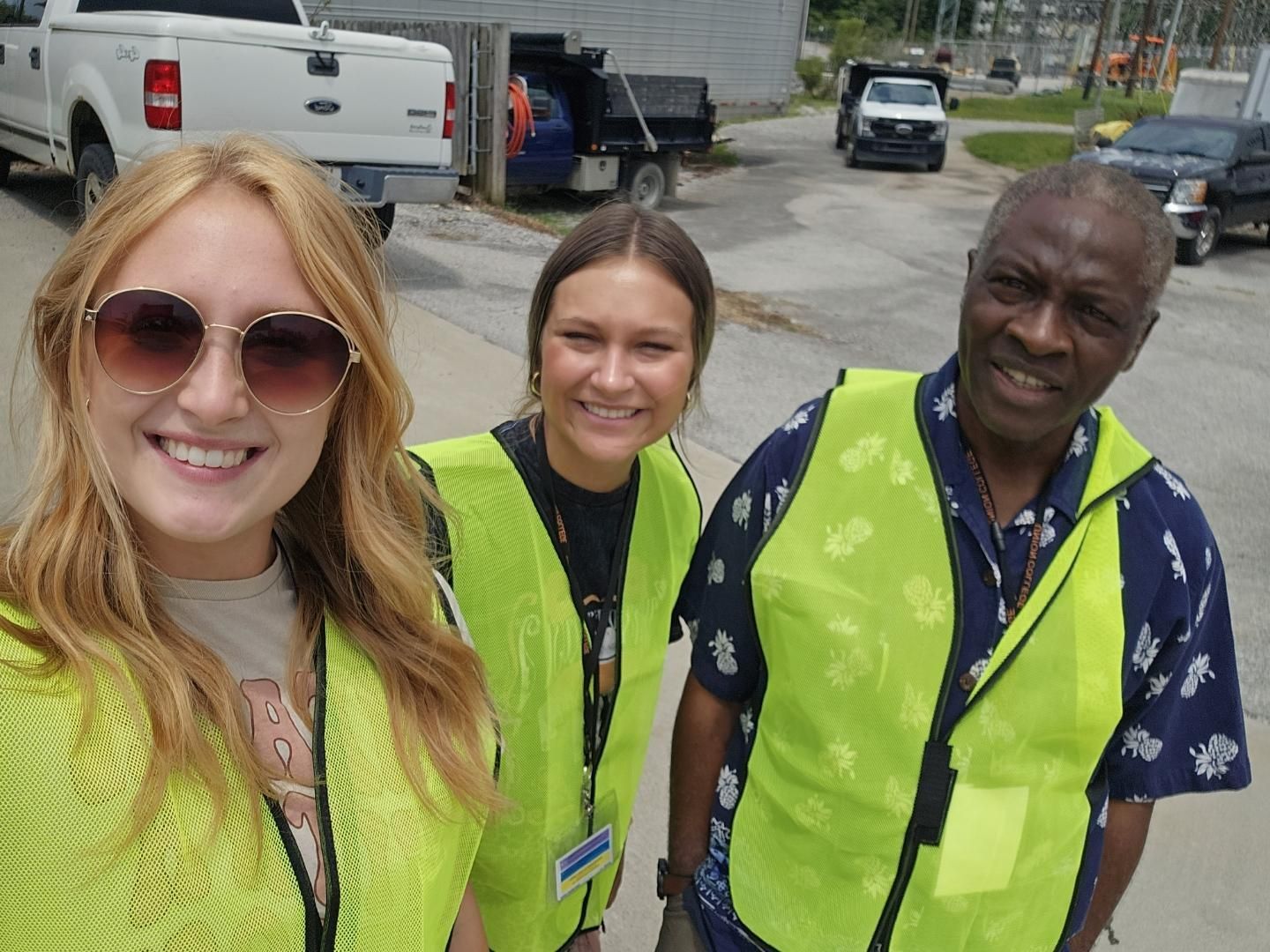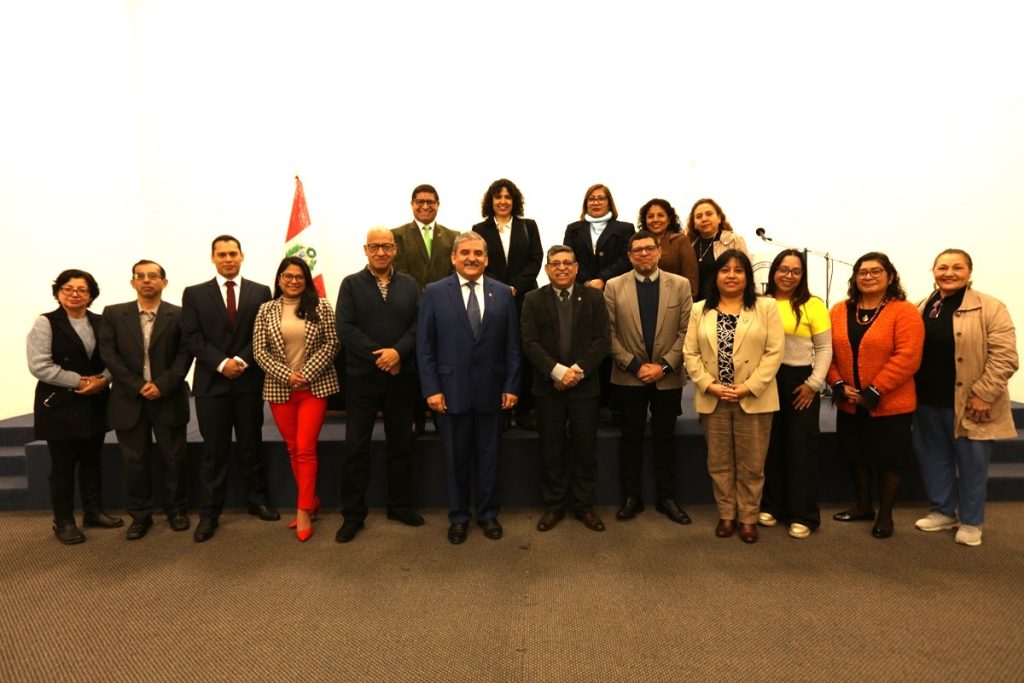Achenjang, Baker, and Nolan – local research, global connection – Union College – Barbourville, KY

Hands-on field research, presenting at an academic conference, writing a project proposal, securing funding for scientific work – all of these real-world experiences will be part of Hannah Baker and Laurel Nolan’s resumes when they graduate from Union College. What’s more, they have contributed to the body of scientific knowledge on a topic their mentor
Dr. Fidelis Achenjang has been passionate about for nearly three decades.
It started when Hannah decided she wanted to follow in her good friend Laurel’s footsteps and apply for a stipend to do undergraduate research through the
Ledford Scholars Program. A project of the
Appalachian College Association (ACA), Ledford is open to local students like Hannah and Laurel, who are from Corbin and Pineville, respectively.
Laurel had completed a project the year prior with
Dr. Sunil Karna, and Hannah saw that it had been a great learning opportunity for her. She wanted to be a part of Ledford, too, and she hoped the experience might also help her achieve her dream of getting into medical school and becoming a doctor one day.
She approached Fidelis, who had been her chemistry professor, about the idea. He is also Dean of the
School of Health and Natural Sciences and the sponsor of the science club, which Hannah is the vice president of and Laurel is the president of. He showed her some projects she could work on with him, and when he started talking about rat-tailed maggots (RTMs), she knew that was the one.
What, one might ask, is the appeal of studying a creature that makes its home in sewage, manure, putrid water, and other decaying matter?
“It means
so much to Fidelis,” Hannah says. “He was genuinely interested in seeing if these maggots are here in the Appalachian region, and I thought it if we could find them, it would be a cool thing to witness.”
Fidelis and the surgeon partnered with the healer to learn from him and collect data about his sightings of RTMs. They developed a questionnaire for his patients, and Fidelis also had his students at Dschang take it around to different parts of the country when they were on holiday from school.
“We wanted to know how extensive this was,” Fidelis says.
Due to years of civil war, Fidelis has not been able to return to Cameroon for some time, and his colleagues have become “blessed memories,” as he says. These difficult conditions, along with the balancing act of pursuing a career while raising his five children, have made it challenging to continue collecting samples and pursuing this passion project. Still, his desire to raise awareness of RTMs has never left him.
When Hannah showed interest in his research, he knew this was a chance to see if they could find RTMs right here in Appalachia and continue the work he had begun decades ago. He told her that the project would be enough for two students, and Hannah recruited her original inspiration, Laurel, to join in.
Starting in May of 2023, the research team reviewed relevant technical literature and sent out surveys to local veterinarians, doctors, educators, septic companies, and others in the region, looking for leads, and keeping track of what they learned. They also traveled to various locations in Tennessee and Kentucky multiple times a week, searching for RTMs. By mid-June, they had been to high-traffic hiking trails, landfills, animal shelters, and other suspected breeding areas with no sightings yet.
“After a long time, lo and behold, we were blessed with this,” Fidelis says. “We were excited, super excited.”
They brought the samples back to the lab to preserve and continued searching other sites throughout the summer. Soon, they discovered RTMs at distilleries and local farms, as well.
Now that the team has identified local sites where RTMs can be harvested, Fidelis is hopeful that collecting the rest of the samples needed for the entomologists will be that much easier, and the next phase of the project can finally ensue.
“Once we have good samples of all the life phases, we will send them to an entomology lab to do the systematics,” he says. “This means we will see which flies are really responsible for this in terms of genomes, in terms of, family, and so on.”
At the conclusion of their summer research, Hannah and Laurel created a presentation of their findings. They shared this at Union as well as at
Lee University’s McNair-Ledford Undergraduate Research Symposium this semester. This was the first time the Lee Symposium had been open to Ledford Scholars, so this part of the project was a new experience for both
Hannah and Laurel.
“It was a really good experience to learn how to make a poster like that and present it to different judges and answer questions about our work,” Hannah says.
“Even learning how to prepare a proposal and how to build relationships with colleagues have really helped me,” Laurel says of her combined experiences with Ledford.
“They are happy with their work,” Fidelis says. “We have found something very useful.”
While RTM infestation is mostly a health concern for those who do not have access to clean drinking water, children and animals are always at risk because they may play in and drink out of mud puddles or other contaminated areas. Raising awareness of RTMs’ existence and their ability to hide at the bottom of deeper water due to their long respiratory “tails” could prevent unnecessary illness here in Appalachia as well as around the world.
“From a medical standpoint, this was really interesting,” Hannah says, explaining that she will bring her new awareness of RTMs and her deepened understanding of parasitology into her future work with patients.
Fidelis says that once more is known about the maggots, there could be many applications of the knowledge, including creating antibiotics from their DNA or intentionally farming them to grow an inexpensive fish food. Mostly though, he is driven by scientific inquiry and the pursuit of knowledge for its own sake, a message he drives home to his students. “We are always learning,” he says.
“This is about Fidelis’s life’s work,” Hannah says of the project, “and I’m really happy we got to help contribute to that.”
Fidelis, Hannah, and Laurel advise anyone who has information about rat-tailed maggots in their area to contact Fidelis at
[email protected], as he is excited to add the information to the data he and the students have already collected. He hopes to make the database public at some point but will ensure that personal identifying information stays private. To learn more about Dr. Achenjang’s work, see
Dr. Fidelis Achenjang | Union College (unionky.edu)
To learn more about the Ledford Scholars Program, see
Ledford Scholars • Appalachian College Association (acaweb.org).


:quality(85)/cloudfront-us-east-1.images.arcpublishing.com/infobae/QNMPG2WPZRDWZKWACO7AJXQTCQ.jpg)

